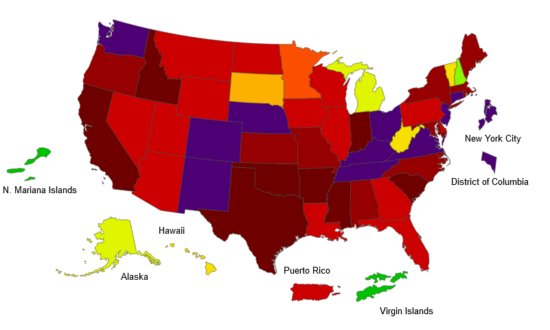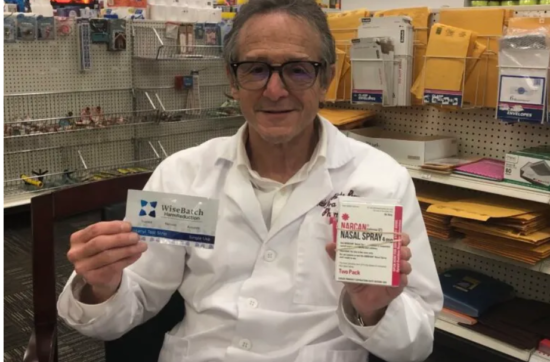Cancer matchmaker of doom, dogs getting flu, rebound-infection reality, and more!
13 Dec 2022
Posted by Andrew Kantor
Hunting for insulin mimics
Insulin is great stuff, but it has one big problem: It dissolves in the gut — that’s why it has to be injected. But what if, wondered Australian researchers, there was another molecule that can do what insulin does and be made into a pill?
First step: proof of concept, which is where they are — as in, they proved the concept by using a super-powerful microscope (cryo-electron microscopy, if you must know) to visualize insulin receptors. It’s sort of like X-raying a lock — now they’re identifying other molecules that can act as a key, doing what insulin does.
So far they’ve found one promising peptide, but “therapeutic outcomes are distant.” Still, knowing that there might be a better insulin than insulin is a might big step.
The foundation needs your gift
It’s not too late! Please make a year-end gift to the Georgia Pharmacy Foundation — help it continue the work it does all year:
- Supporting the mental wellness of pharmacists across the state
- Fun fundraising events
- Student scholarships
- Continuing education funding
- Preparing future pharmacy leaders, and more….
Your gift will help the foundation to continue its legacy of support for every generation of pharmacists for years to come!
All the bad news
Dogs get their own flu
Veterinarians are reporting outbreaks of H3N2 dog flu, aka canine influenza virus.
A dog sick with canine influenza can end up transmitting the virus to others via direct contact, contaminating surfaces with the virus, or dispersing virus-laden respiratory droplets into the air via coughing, barking, or singing.
Human flu continues to spread
“CDC estimates that, so far this season, there have been at least 13 million illnesses; 120,000 hospitalizations; and 7,300 deaths from flu.” There’s high or crazy-high flu activity in 43 states (including Georgia).
While the number of cases continues to rise, there was a slight dip in positive test results from last week, so … maybe good news?
Considering that flu usually peaks in February and we’re waaaaaaay above normal for this time of year, predictions may be a waste of time. Just be careful.

And Covid cases are picking up again
“In the past two weeks, reported cases have increased by 53 percent, and hospitalizations have risen by 31 percent,” reports The World’s Most Depressing Magazine. This isn’t surprising (thanks, Thanksgiving), but with at least two other family-gathering holidays fast approaching, it’s likely gonna get worse.
Ira and Jonathan, spreading the word
Shout-out to both GPhA’s Ira Katz and AIP VP Jonathan Marquess, both of whom were featured in a Capitol Beat news story on the increase in demand for naloxone as overdoses — and fentanyl use — increase.

Stat Watch
How many Americans have had Covid-19 at this point?
About 42 percent, according to CDC data — based on samples of the blood of more than 1,500 people. And yep, they can tell whether someone was vaccinated or actually had Covid.
Fun fact: Almost 44 percent of the folks who had had Covid claimed never to have been infected — it was that mild.
How many people get a rebound Covid infection after taking antivirals?
Long article, short answer: About 1% who take molnupiravir, 1% who take Paxlovid (nirmatrelvir-ritonavir) … and 1% who don’t take an antiviral.
Considering that the antiviral can keep you out of the hospital and reduce the symptoms, the numbers say it’s absolutely worth it.
Talk to your COPD patients
Because someone else apparently isn’t. Check out these numbers from a survey of about 1,200 COPD patients:
- 66% said COPD has a substantial impact on their everyday life, including almost a third who said “that the disease has affected their ability to work.”
- 84% started taking meds because their doctor recommended it
- The big one: “Only about 4 in 10 (44%) patients said they have detailed conversations with their doctor about their COPD symptoms, and more than a third (34%) feel they don’t fully understand their condition.
There’s a 1/3 chance that COPD patient doesn’t understand their condition! If only there was a healthcare provider they spoke to regularly who might be able to help.

Look for this face
Matchmaker, matchmaker, make me a killer
A new drug for bone marrow cancer, a bispecific antibody called talquetamab, cured* 73 percent of patients in a phase 2 clinical trial. This is a Very Big Deal.
Talquetamab is like the matchmaker from Hell (at least from the myeloma’s perspective). It binds to T cells on one side and myeloma cells on the other (using a receptor called GPRC5D, if you want the details). “Bringing your army right to the enemy,” as the Mount Sinai researchers put it.
Bonus: It worked even in patients whose cancer was resistant to all approved multiple myeloma therapies.
* Technically it “successfully treated” them; they avoid the “c” word.
The Long Read: Country Mouse, City Mouse edition
Where “mice” are the municipalities getting money from the Big Opioid Settlement, and where the big bucks are going to the cities, while the big problems are in the country. “In Rural America, Deadly Costs of Opioids Outweigh the Dollars Tagged to Address Them” from Kaiser Health News.



